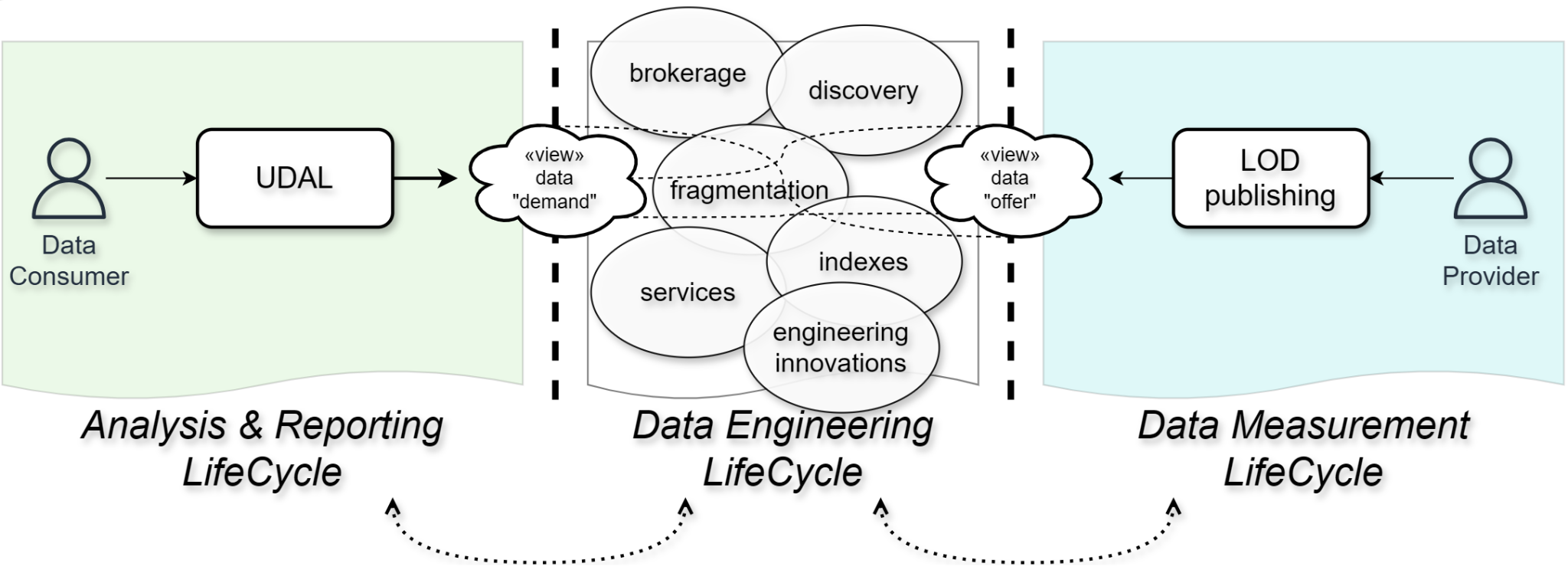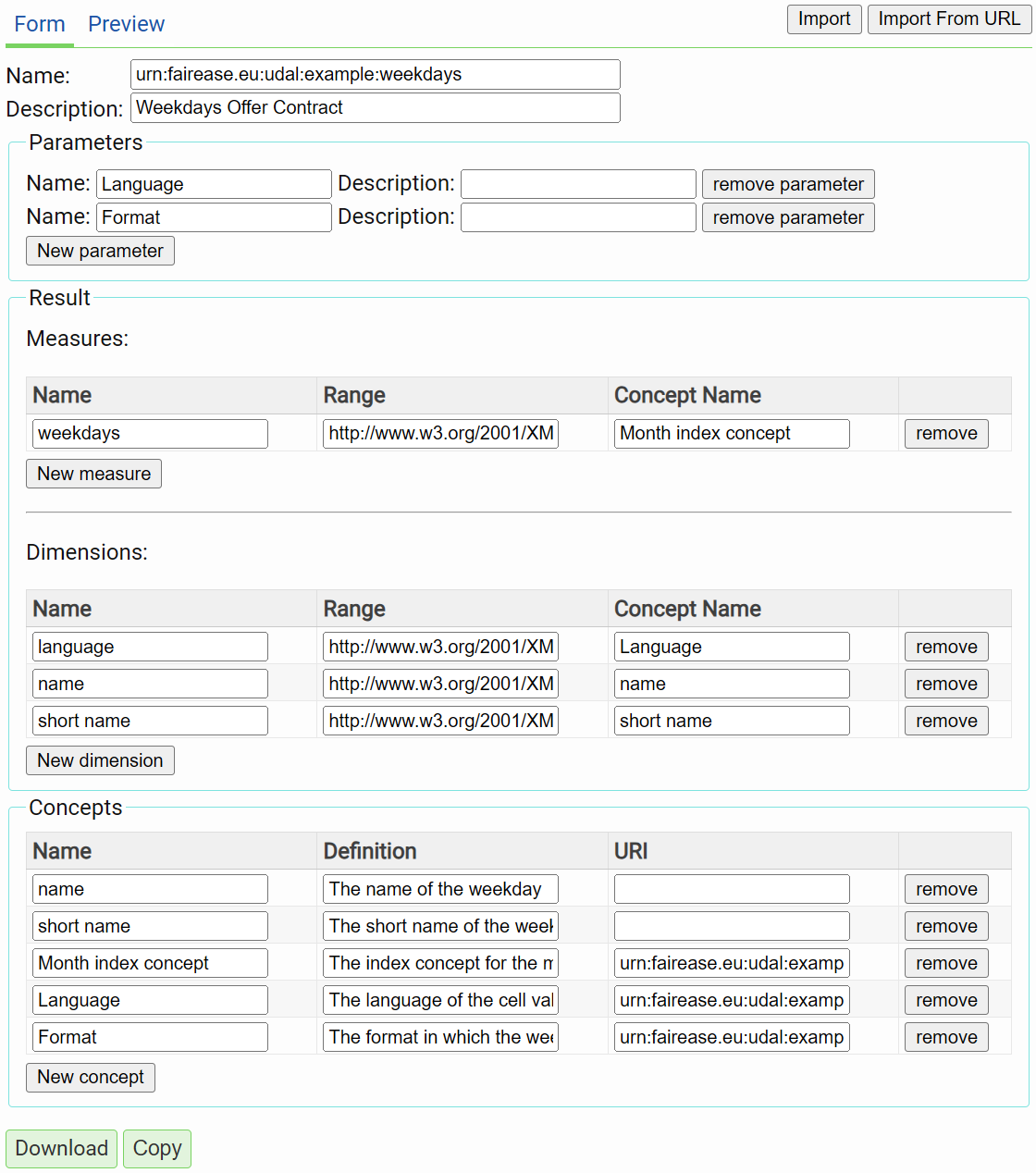Client side data access¶
The diversity of protocols and standards, sometimes even for the same dataset, can be a barrier for less technical users. There is a need to access relevant data fragments (i.e. “what”) without needing to know “where” the data is stored or “how” it is accessed.
The original FAIR-EASE architectural document D4.1[20] introduced a client-side component responsible for the data-access. This concept got elaborated in the deliverable D4.3[21] through the Uniform Data Access Layer (UDAL). Those documents describe the vision and practical approach behind this technique to formally streamline all data access.

Figure 1:UDAL principle
By introducing formal data contracts, UDAL allows different components of the data flow to interact without being tightly coupled, making it easier to evolve or replace individual parts without disrupting the whole system. This decoupling of interdependencies extends the lifespan of each component, as they can be updated or maintained independently. At the same time, the interface makes it possible to adopt new technical solutions or innovations at a lower cost, by reducing the need for extensive reengineering or custom integration.
A UDAL python interface[22] and a python implementation example[23] have been published on Github. Two pilots have implemented the UDAL principle, demonstrating its applicability in real-world contexts :
Ocean BGC : [https://
github .com /fair -ease /py -udal -pokapok] Marine Omics Observation: [https://
github .com /fair -ease /py -udal -mgo]
Most notably in this final phase of the project we would like to highlight the introduction of the Dataset Demand Registry [24] and its associated “Query Editor”:

Figure 2:screenshot of the UDAL Query Editor
Analytics services¶
FAIR-EASE promotes many data analysis services and platforms that help users explore, process, and visualise data more easily. Whether for interactive use, running predefined workflows, or viewing data on maps and charts, these tools are designed to be accessible and adaptable to different user needs.
Technical support was also provided to help pilots improve the TRL and FAIRness of their tools, for example by publishing them in code repositories, creating containers or integrating them into Galaxy toolshed.
Marc Portier (2023) FAIR-EASE_D4.1_Landscaping exercise_The-meta-data, software and cloud needs for the data lake. Zenodo. doi: 10.5281/zenodo.7965398.
PORTIER, M. (2024) FAIR-EASE - D4.3 Status and expectations of the FAIR-EASE data lake. Zenodo. doi: 10.5281/zenodo.13933551.